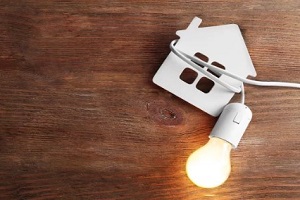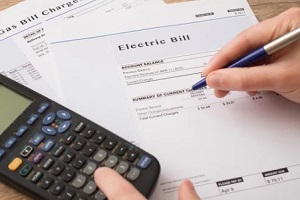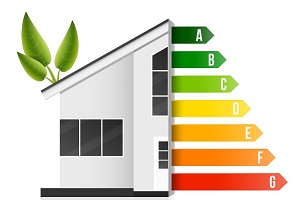 The U.S. Department of Health and Human Services’ Office of Community Services administers the Low Income Home Energy Assistance Program (LIHEAP), which offers low-income renters and homeowners financial assistance to heat or cool their home by way of making direct payments to their electric utility or gas company.
The U.S. Department of Health and Human Services’ Office of Community Services administers the Low Income Home Energy Assistance Program (LIHEAP), which offers low-income renters and homeowners financial assistance to heat or cool their home by way of making direct payments to their electric utility or gas company.
There are state-to-state variations to this program; additionally, there are various references that are also state-specific, such as HEAP, the Fuel Assistance Program, the Heating Assistance Program, or the Utility Assistance Program. There are two categories of rewards offered by this program: regular and emergency.
Conditions for Eligibility
Each state independently determines LIHEAP eligibility rules for its residents. There are some standards that apply across the board. Although there is no minimum age requirement, households with members who are at least 60 years old typically receive preference. Marital status has an impact on eligibility insofar as providing higher eligibility financial thresholds for more household members. Assistance is available to qualifying foreigners and U.S. citizens alike.
The applicant’s physical condition or health are not factors in the qualifications. The applicant’s eligibility for LIHEAP does not ensure that they will receive financial support. In order to qualify for LIHEAP, a person’s income cannot fall below 110% of the Federal Poverty Level (FPL) or rise above 150% of the FPL, according to federal regulations.
States are allowed to select a specific level from that range. As an alternative, states have the option to set the maximum income for LIHEAP assistance at 60% of their state’s median income. The income cap can surpass 150% of the FPL in states that opt to use 60% of the median income of their residents.
Based on the current FPL, a single-person household with an annual income between $13,739 and $18,735 could qualify. The income range for a two-person family is $18,601 to $25,365. Please be aware that Hawaii and Alaska have higher FPLs than the other states and the District of Columbia due to their greater cost of living. Additionally, in some jurisdictions candidates may deduct medical expenses from their income up to a specific level.
On the Office of Community Services website, you can find out the median income for each state. Please be aware that the data in the table was computed for a family of four. Multiply the 4-person amount by 52% for a single person, and by 68% for a household of two people. States may also take the applicant’s available financial resources into account . The asset ceiling for governments might range from $2,000 to $25,000 per household.
Other Conditions
The LIHEAP program requires participation from a household’s utility provider. To verify participation and eligibility requirements, interested residents should contact their utility company. The following details might also need to be included with the application form from applicants:
 Copy of recent utility bills
Copy of recent utility bills- Social Security, payroll, unemployment insurance, pension funds, disability, proof of income
- Evidence of current address (e.g., rent receipt, lease or deed, property tax bill)
- All household members’ Social Security numbers as well as documentation of residency, such as birth certificates or transcripts
- Evidence of American citizenship or legal residency
The following additional documentation may be needed for Emergency/Crisis assistance:
- Utility company termination notification with cutoff date
- Evidence of a heating emergency
- A copy of the most recent fuel delivery bill
- The red sticker for repairs to the furnace or a thorough explanation of the issue
Benefits
Regular Benefits and Emergency Benefits, also known as Cash Benefits and Crisis Benefits, respectively, are two categories of benefits available under the LIHEAP program:.
- Regular benefits are often awarded in larger amounts, have a longer approval process, and are applied for annually.
- Benefits for emergencies are available to people whose utilities are immediately in danger of being shut off, who have dangerously low fuel levels, or who have recently experienced a natural disaster. Within 48 hours of application, these will be authorized or refused.
There may be some options to LIHEAP as well. An example is the Special Reduced Residential Service Rate Program, which may give an older person receiving Supplemental Security Income an additional 20% off their electric and/or gas bills, is available in many states.
 In addition to financial assistance, several states provide weatherization through LIHEAP as well. This program was created to assist low-income families by offering insulation, repair of shattered windows, and repair or upgrade of heaters and furnaces to increase homes’ energy efficiency.
In addition to financial assistance, several states provide weatherization through LIHEAP as well. This program was created to assist low-income families by offering insulation, repair of shattered windows, and repair or upgrade of heaters and furnaces to increase homes’ energy efficiency.
For those with modest incomes, the U.S. Department of Energy also provides a weatherization assistance program. In some states, households that are qualified for the LIHEAP program are also eligible for the Weatherization Assistance Program (WAP).
Obtaining Benefits
The beneficiary/household receives a lump sum of money from LIHEAP that is remitted to a utility company or a fuel dealer on their behalf. This is normally sent once a year, but it may be sent more frequently or in lower amounts to help the state manage its finances. Benefits from LIHEAP may only be used to cover energy assistance.
Limits & Amounts of Benefits
The number of people living in the home, their income, the kind of fuel consumed, and the size and style of the residence are only a few variables that have an impact on the size of grants. Taking into account the number of people living there, the maximum level of aid is given to the households with the lowest incomes and highest energy expenses. Even within the same state, the Regular Benefit Amount and the Emergency Benefit Amount may differ significantly.
An additional 20% in savings would be provided to those who qualify for the Special Reduced Residential Service Rate Program on their gas and/or electric bills. This might result in additional savings of $1,000 per year for the average household.
Application Procedure
When the financing pool is exhausted, financial help is no longer accessible until the upcoming year in the majority of states that offer LIHEAP benefits.
 Each fall, when most states start accepting applications, there is a rush to submit an application for LIHEAP due to its first come, first served financing method. Ordinarily, households with a member over 60 may apply a month in advance, guaranteeing seniors preference. LIHEAP is offered year-round in states with warm climates, like Arizona.
Each fall, when most states start accepting applications, there is a rush to submit an application for LIHEAP due to its first come, first served financing method. Ordinarily, households with a member over 60 may apply a month in advance, guaranteeing seniors preference. LIHEAP is offered year-round in states with warm climates, like Arizona.
Applying for the LIHEAP program is free. A household must nevertheless keep paying the utility bill throughout the application and approval process, and if authorized, they need to continue to pay a portion of the bill. In order to be approved for LIHEAP, the utility company in question must be a program participant.
Reach out to your utility company directly to determine whether they participate, and to inquire about eligibility requirements, if any. Regular Benefit approval is generally made within 30 days of application, with payments applied approximately 15 days after approval. Emergency Benefit applications are approved more rapidly, typically within 48 hours of application.
Contact your state’s LIHEAP office to start the application process, or call the National Energy Assistance Referral Hotline at 866-674-6327 for further details. Visit your local county social services office for assistance with the application. Applicants who are housebound may ask local agency workers to visit them at home.
To learn more about the LIHEAP program before applying, reach out to the knowledgeable team at Shepherd’s Care of Northern Virginia today.


